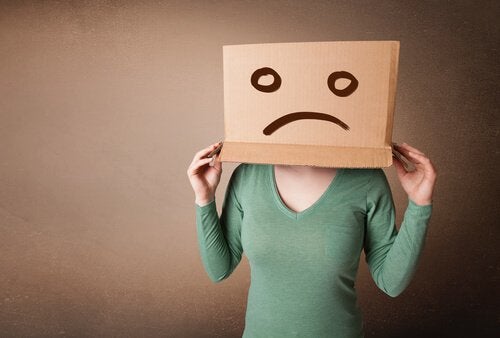Shame is an emotion that is activated whenever we think that we have failed in a social norm and fulfills a powerful function of social regulation: thanks to it we have ensured the acceptance of the group and therefore its survival for millions of years.
Today, shame is always present in our emotional structure, but sometimes manifests itself in inappropriate situations.
- There are times when we have to face a situation that poses a risk to us.
- Because we know that we are very likely to be ashamed.
- Will we be rejected by the social group? Probably not.
- But we think so.
- And on top of that.
- We always add the terrible label to this unlikely fact.
There are two ways to get rid of dysfunctional shame: the first is to convince ourselves, through internal dialogue, that we have no evidence to anticipate the disapproval of the people around us and that, even if we have them, we do not need to accept. all people don’t either. The other is to risk shame and do it voluntarily. In this sense, cognitive psychologist Albert Ellis has created a series of exercises aimed at achieving unconditional self-acceptance.
What Albert Ellis wanted to achieve through these exercises was for the person who performed them to realize that personal worth is unalterable. No matter how we are or act, our value will always be the same.
If we value ourselves (and also others) for being, because we have existence, it will be very difficult for us to deprive ourselves of being ourselves, in this way we will not need so much social approval, which will make us more authentic. People.
In general, we have been taught to feel ashamed every time we do something that society has described as wrong. When we experience this shame, we actually tell ourselves that we are despicable beings, that we will never know how to act differently, that no one will love us, and countless other irrational and bitter inner phrases that serve us alone. diving deeper and deeper.
To prevent this from happening, Ellis suggests thinking of something that might seem ridiculous to our culture, so that it doesn’t exactly serve to improve our image Have you thought of anything?Once you’ve thought about it and it’s possible to put it into practice, you have to act and do it, without thinking twice.
The worst thing that can happen is that you’re rejected by others, but let’s think well: did rejection kill someone, what does it mean that the other person doesn’t approve of me as I am, who has the problem, the other person or me?
Some of the exercises Albert Ellis shows us as an example are walking with a banana as if it were our pet. This would involve talking to her, stroking her and even wearing a “necklace. “
Another exercise is to stop someone in the middle of the street and tell them they just got out of the hospice and would like to know what year they’re in. You can also choose to do your best to sing and sing in the middle of the street this song you love so much, or even get dressed extravagantly.
No matter what you choose, it must be something that really activates your shame, there’s no point in choosing something that doesn’t really cause that feeling, the idea is that you learn to tolerate it and put into perspective what’s going to happen.
Surely you should think, “I would never do that in life, they’ll think I’m crazy!”And you may be right, but the surprising thing is that few people will think that. We usually set up non-existent disasters in the form of whirlwinds of thought, so we come to believe that everyone will reject us, that we will never be approved, that it will be terrible, that the rejection of others will certainly mean that we are verses, etc.
It is true that some people will look at us in a negative way and others may even insult us, but if we pay attention to it, these people are usually the ones who have faces that indicate dissatisfaction, sadness?I mean, they’re already bad at life, it has nothing to do with you.
However, other people (most) will laugh with us, some will even join our little show and not judge us so harshly, so we can even make new friends.
Remember, after all, others are also people, they also annoy and sometimes they seem ridiculous, they get it wrong, they correct, they feel emotions, etc. , if they judge you, it will only be their problem, never yours. If you hurt anyone, you’re free to act however you want. Have you ever thought of a good exercise to attack your shame?Do you dare put it into practice?

